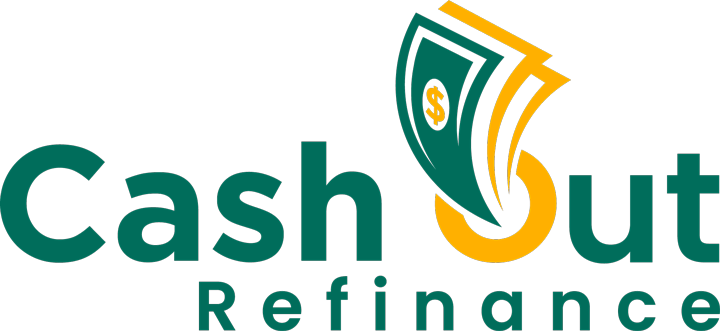Cash-Out Refinance Rates: Everything You Need to Know
A cash-out refinance is a powerful tool that allows homeowners to tap into their home equity for cash while potentially securing a lower interest rate. However, the interest rate you receive on a cash-out refinance is influenced by multiple factors, including market conditions, loan type, credit score, and lender requirements. Understanding how cash-out refinance rates work can help you make informed decisions and maximize your financial benefits.
What is a Cash-Out Refinance?
A cash-out refinance replaces your existing mortgage with a new, larger loan, allowing you to withdraw the difference in cash. This option is commonly used for home improvements, debt consolidation, investments, or covering large expenses. Unlike a traditional refinance that simply lowers your interest rate or changes your loan term, a cash-out refinance increases your loan balance while providing access to funds.
Factors That Affect Cash-Out Refinance Rates
Several factors determine the interest rate you’ll receive on a cash-out refinance. These include:
1. Credit Score
- A higher credit score (740+) typically qualifies for the lowest rates.
- Borrowers with credit scores between 620-699 may see moderately higher rates.
- Scores below 620 often result in significantly higher rates or limited loan options.
2. Loan-to-Value (LTV) Ratio
- Most lenders allow cash-out refinancing up to 80% of home value for conventional loans.
- FHA cash-out refinance allows up to 80% LTV, while VA cash-out refinance allows up to 100% LTV.
- The lower your LTV ratio, the better your interest rate.
3. Debt-to-Income (DTI) Ratio
- A DTI ratio below 43% is preferred by most lenders.
- High DTI may result in higher interest rates or loan denial.
4. Loan Amount and Type
- Conforming loans (within Fannie Mae and Freddie Mac limits) tend to have lower rates.
- Jumbo loans (exceeding conforming limits) usually have higher rates due to increased risk.
5. Market Conditions
- Interest rates fluctuate based on Federal Reserve policies, inflation, and housing market trends.
- Locking in your rate at the right time can save thousands over the life of the loan.
Current Cash-Out Refinance Rates (As of 2023-2024)
Cash-out refinance rates generally run 0.125% to 0.5% higher than traditional rate-and-term refinance loans. While exact rates fluctuate, typical averages are:
- Conventional Cash-Out Refinance: 6.50% – 7.25%
- FHA Cash-Out Refinance: 6.75% – 7.50%
- VA Cash-Out Refinance: 6.25% – 7.00%
- Jumbo Cash-Out Refinance: 7.00% – 8.00%
Comparing Cash-Out Refinance Rates by Loan Type
| Loan Type | Typical LTV Limit | Typical Interest Rate |
|---|---|---|
| Conventional | 80% | 6.50% – 7.25% |
| FHA | 80% | 6.75% – 7.50% |
| VA | 100% | 6.25% – 7.00% |
| Jumbo | 70%-75% | 7.00% – 8.00% |
How to Get the Best Cash-Out Refinance Rates
To secure the lowest possible interest rate on a cash-out refinance, consider the following strategies:
1. Improve Your Credit Score
- Pay down credit card balances to reduce utilization.
- Make all loan and bill payments on time.
- Avoid applying for new credit before refinancing.
2. Lower Your Loan-to-Value Ratio
- If possible, wait until your home’s value increases before refinancing.
- Consider paying down your mortgage balance to reduce LTV.
3. Compare Multiple Lenders
- Request rate quotes from at least 3-5 lenders.
- Consider both online lenders and traditional banks for the best deal.
4. Lock in Your Rate at the Right Time
- Monitor market trends and work with your lender to lock your rate when conditions are favorable.
5. Opt for a Shorter Loan Term
- Choosing a 15-year mortgage instead of a 30-year mortgage can result in lower rates.
Pros and Cons of Cash-Out Refinancing
Pros:
✅ Access to Large Amounts of Cash – Can be used for home renovations, debt consolidation, or investments. ✅ Lower Interest Rates than Personal Loans – Typically cheaper than credit cards or unsecured loans. ✅ Fixed Interest Rates Available – Provides stability compared to HELOCs with variable rates. ✅ Potential Tax Deductions – Mortgage interest may be deductible if used for home improvements (consult a tax advisor).
Cons:
❌ Higher Interest Rates than Rate-and-Term Refinancing – Typically 0.25% to 0.50% higher. ❌ Closing Costs Apply – Usually 2%-6% of the loan amount. ❌ Increases Mortgage Debt – Extends repayment time and may increase monthly payments. ❌ Risk of Foreclosure – Failure to make payments could lead to losing your home.
Alternatives to Cash-Out Refinancing
If a cash-out refinance isn’t the best option for you, consider these alternatives:
1. Home Equity Line of Credit (HELOC)
- Works like a credit card, allowing withdrawals as needed.
- Variable interest rates may increase over time.
2. Home Equity Loan
- Fixed-rate loan that provides a lump sum.
- Higher interest rates than cash-out refinancing.
3. Personal Loan
- No home equity required, but comes with higher interest rates.
4. FHA 203(k) Loan
- Ideal for home improvement financing, allowing you to borrow based on the home’s future value.
Is a Cash-Out Refinance Right for You?
Consider a cash-out refinance if:
- You have significant home equity and need cash for a major expense.
- You can qualify for a lower interest rate than your current mortgage.
- You plan to stay in your home long enough to recover closing costs.
A cash-out refinance may not be ideal if:
- Your new mortgage rate would be higher than your existing rate.
- You’re near retirement and want to avoid extending your mortgage term.
- You lack the necessary credit score or income stability.
Final Thoughts
Cash-out refinance rates vary based on personal financial factors and market trends. Before refinancing, compare rates, check your eligibility, and ensure that the loan aligns with your financial goals. By improving your credit score, managing your LTV ratio, and locking in a competitive rate, you can maximize your benefits and make the most of your home equity.
Are you ready to explore cash-out refinance options? Start by comparing lenders and securing the best rate for your situation today!


